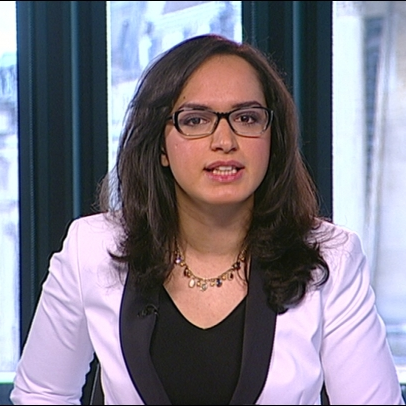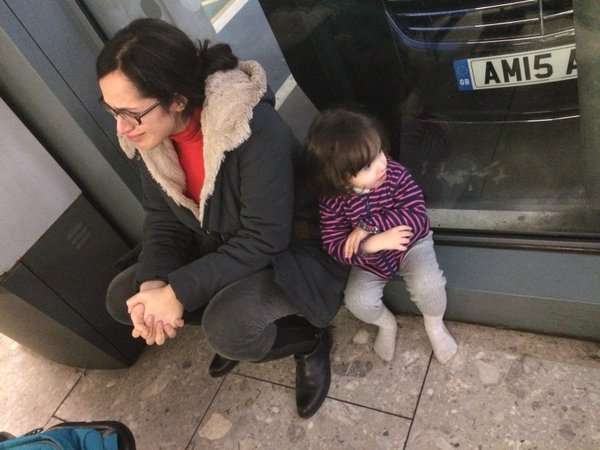BBC Journalist Prevented From Traveling to US Because of New Visa Waiver Rules
British-Iranian reporter Rana Rahimpour stopped at airport; new restrictions weren't supposed to be in effect until April.

BBC Persia journalist Rana Rahimpour was

prevented from boarding a plane traveling from London to New Jersey on Tuesday because her dual British-Iranian citizenship disqualifies her from the visa waiver program, thanks to new rules passed by Congress last month.
Before the changes, citizens of 38 countries participating in the visa waiver program (including the US, most of Europe, Japan, Australia, Brunei, Chile, Taiwan and Singapore) could travel to other participating countries without a visa for 90 days. But under the new restrictions, passed in the wake of last November's Paris terror attacks, citizens of visa waiver countries who have dual citizenship with Iran, Iraq, Syria or Sudan are barred from entering the US without a visa. Additionally, any citizen of a visa waiver country who has traveled to any of those four countries in the past five years would need a visa to travel to the US.
Iran's government is completely hostile to BBC Persian reporters, and because of that, Rahimpour has been unable to visit the country where she was born for more than seven years. As a noted journalist who lives and raises a family in the United Kingdom, labeling her as a potential terror threat doesn't pass the laugh test.
But no matter, when a panic-inspired law passes, no one is immune. Not even women who marry Iranian men or children born to them, because Iran automatically confers citizenship on those wives and children even if they've never set foot in the country. The new rules make even less sense when you consider that dual citizens of Saudi Arabia and Pakistan, two countries whose citizens have committed numerous terror attacks against the U.S. since 2001, are still allowed to enjoy the visa waiver program.
In a phone interview, Rahimpour told me she was well aware of the new regulations but had understood (as most everyone did until today) that they did not go into effect until April of this year. She says she even contacted the US embassy prior to booking her tickets to the US, where she hoped to attend her six-year-old nephew's birthday party, to confirm this information.
But when she arrived at Heathrow airport with her two-year-old daughter earlier today, she was told her Electronic System for Travel Authorization (ESTA) request had been denied, even though when she signed in to the ESTA website her request was still listed as "pending." No explanation was given for the denial.
Rahimpour, who is 30 weeks pregnant, says she has no plans to apply for a visa waiver at this point because by the time it is likely to be approved she will no longer be in physical condition to fly. She tweeted this from the airport:

@ranarahimpour My fully #British daughter can't attend her #American cousin's bday cos her mum was born in #Iran. pic.twitter.com/8Rt1aHLlTD
— Rana Rahimpour (@ranarahimpour) January 19, 2016
Clearly hurt on a personal level over being prevented from visiting her family, Rahimpour also expressed exasperation over the bureaucratic morass she had unwittingly waded into.
"What was fascinating was the confusion. No one seemed to know what was going on," Rahimpour told me. "Even the US government websites were unclear. If the law requires me to get a visa, I'm happy to get a visa, but if I had known what would happen today, I wouldn't have booked my flights and hotel. I just wanted some clarity."
As my colleague Matt Welch has explained, visa waiver rules are reciprocal, meaning any restrictions the US imposes on citizens of other countries will also be imposed on Americans wishing to travel abroad:
When you imagine those same restrictions being applied on Americans (as they almost certainly would be), you're faced with entire categories of professionals—military service men and women, journalists, NGO employees—who would now no longer be able to travel to Europe visa-free. And their counterparts in Europe will face extra barriers to entry before they can go to Disneyland or visit the Grand Canyon.
Last week, Reps. Justin Amash (R-Mich.), John Conyers (D-Mich.), Debbie Dingell (D-Mich.), and Thomas Massie (R-Ky.) introduced the the Equal Protection in Travel Act (EPTA) of 2016, which aims to remove "discriminatory limitations recently placed on certain dual nationals who might participate in the Visa Waiver Program (VWP)." In a press release announcing the proposed legislation, Amash was quoted as saying:
Without EPTA, the recently enacted visa law could harm countless Americans—even United States-born citizens—who have limited or indirect connections to countries of concern…It's not okay to subject Americans to different standards for travel on the basis of ancestry.
It's not clear whether Amash's bill would have spared Rahimpour her ordeal, given the confusion over what laws are in effect at which time, as well as the lack of transparency regarding the approval or denial of ESTA requests.
One thing is certain, if a BBC journalist (and British citizen) can be humiliated this way, international travel is likely about to get much more difficult for thousands upon thousands of people, including many Americans.


Show Comments (260)